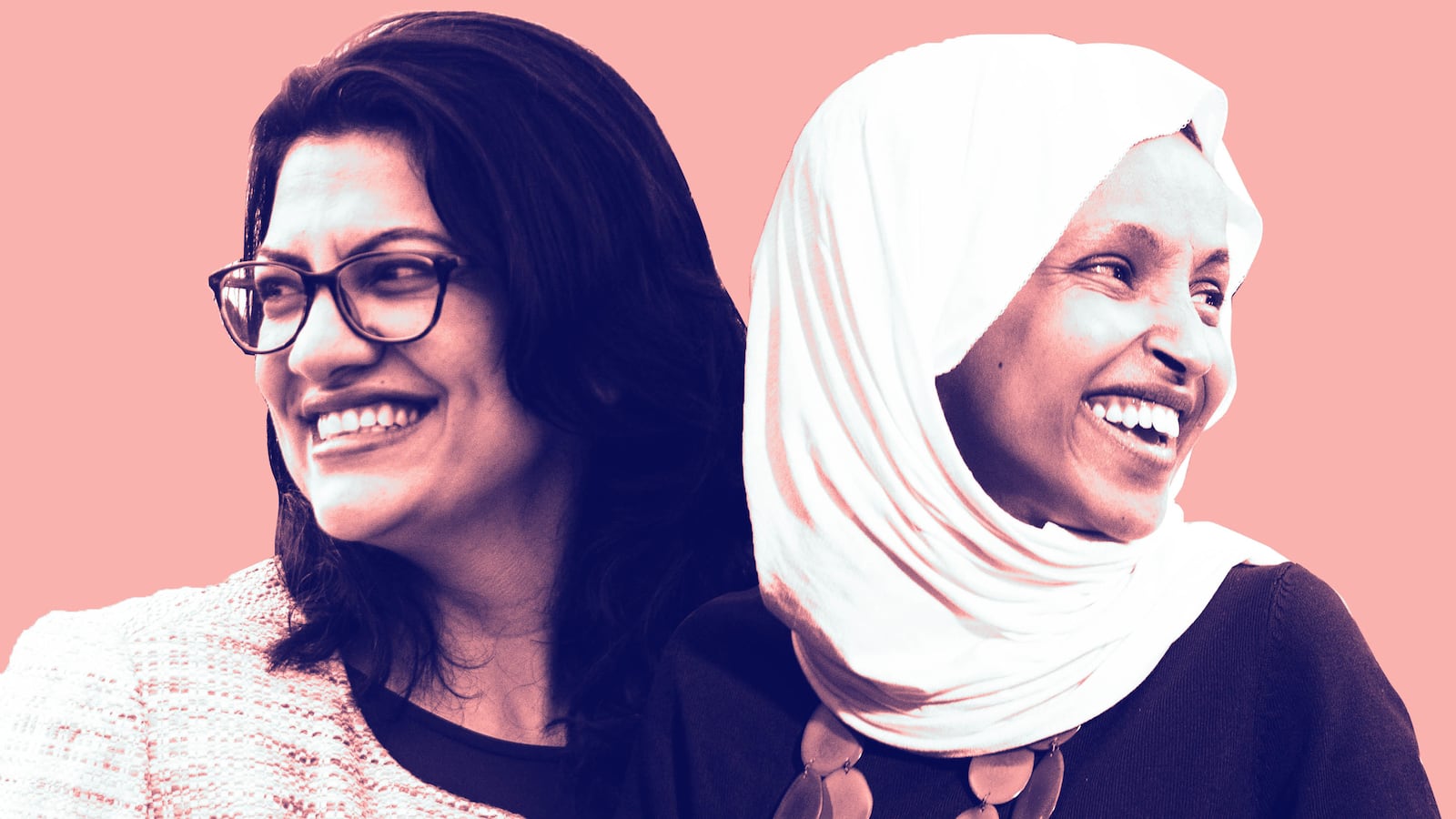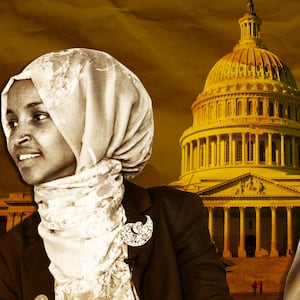If Donald Trump thought his despicable attacks on Reps. Ilhan Omar and Rashida Tlaib were going to intimidate Muslim women from running for office, he doesn’t know Muslim women. In fact, Trump’s comments did just the opposite—they inspired even more Muslim women to not just run for office, but to win.
On Tuesday, four Muslim women from Virginia to Maine to Minnesota won elections and made history as the first to ever hold those positions. In Virginia, there were two wins. Ghazala Hashmi became the first Muslim woman ever elected to the Virginia State Senate, defeating an incumbent Republican in a red district. While Abrar Omeish, 24, was elected to the Fairfax County School Board, making her not just the first Muslim but, as she told me, the first person of Libyan heritage she believes ever elected to office in the United States.
In Maine, Safiya Khalid, 23, was elected as the first Somali immigrant to serve on the city council in Lewiston. While in Minnesota, another young Muslim immigrant was making history, as 23-year old Nadia Mohamed became the first Somali Muslim ever elected to the St. Louis Park City Council.
These are the very type of people that Trump wants to “send back,” but instead, they stepped forward. What Trump and some of his base don’t get is that the Muslim community will not be intimidated into silence nor driven to the shadows by their hate. The reason is simple: we have developed a rugged exterior because we’ve been dealing with bigotry spewed by the right long before Trump came on the scene.
But clearly Trump took spewing hate to new lows. And what has made Trump’s bigotry especially jarring is the contrast to the inclusiveness of President Obama. For example, in February 2016, Obama made his first visit as president to a U.S. mosque, in Baltimore, where he told the audience that I was a part of: “Let me say as clearly as I can as president of the United States: you fit right here. You're right where you belong. You're part of America too.” He then added a line I have often quoted, “You're not Muslim or American. You're Muslim and American."
Contrast that to Trump a little over a month later on CNN declaring, “Islam hates us.” This was on the heels of his comment a few months before calling for a “total and complete shutdown” of Muslims entering the country.
It was Trump’s words and his 2017 Muslim ban that ignited a sense of urgency in our community that we must get involved because our very existence in America depends upon it. As Omeish commented on Trump’s Muslim ban that still applies to her family in Libya, “What?! My family can’t be here?! Well, hell yeah I’m going to unseat you!”
Hasmhi, who was an educator before making her first ever run for office, actually had a dramatically different response to Trump’s Muslim ban, although it ultimately resulted in the same course of action, with her running for office. Hashmi shared with me that she had a “panic attack” while sitting in her car in February 2017, reflecting on Trump’s Muslim ban implemented just a few weeks earlier. Hashmi, who immigrated to the United States at age 4 from India, asked herself a question that she never contemplated before in her over 50 years in the country: “Did I still have a place in the country I called home?”
It was that existential question that motivated many Muslims to respond with a “Hell, yes,” animating countless people in the community to get fully immersed in all facets of politics. Since 2017, an estimated 300 Muslim Americans have run for office, including more than 100 women, and many have won elected offices from school board to Congress to state attorney general.
But “running while Muslim” adds an extra challenge. The bigots, led by the example of the anti-Muslim Bigot-in-Chief Trump, will do all they can to harass and even incite violence. Safiya Khalid, while running for Lewiston city council, a mid-size city of about 36,000, was subject to what appears to have been a coordinated online attack by right-wing actors as far away as Alabama and Mississippi in the closing days of her campaign. As Khalid told The Washington Post, “I just couldn’t take it. I was crying so bad that my eyes were completely red.”
Omeish, a graduate of Yale who is currently in graduate school at Georgetown working toward her law degree and master’s in public policy, shared how she was attacked continually online by people because of her faith and especially since she wears a hijab. “People accused me of being in the Taliban and wanting to impose Sharia law in the schools,” she explained. But both women persevered and won.
What I found especially intriguing in my conversations with Omeish and Hashmi is how both explained that their religious faith as Muslims and their pursuit of public office to help their fellow Americans were intertwined. Hashmi spoke of how Islam calls on us to work for social justice and help those in need, such as her fight to expand Medicaid benefits in Virginia. Omeish echoed that sentiment explaining that the “Islamic values of service” inspire her to combat the inequality in the school system where communities of color see less funding from pre-K through high school.
These elected officials, who are unapologetically Muslim and unapologetically American, are the manifestation of the words Barack Obama stated at that Baltimore mosque in February 2016. It’s not a choice between being Muslim or America, just like it’s not a choice between being American or Jewish or Sikh or any faith or no faith and American. In America we can proudly be both, and despite what Trump may think, we are right where we belong.







